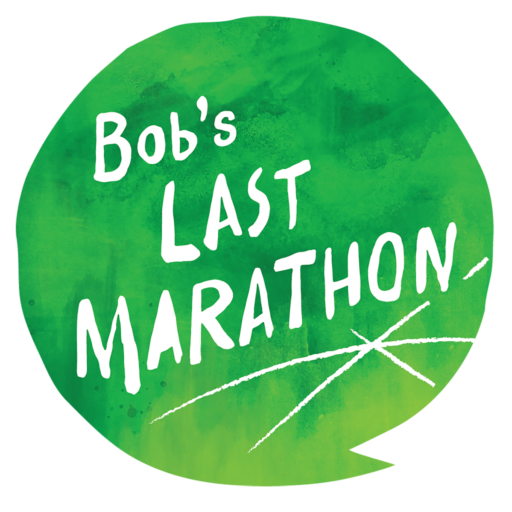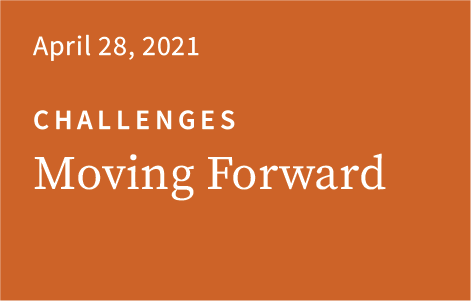Transcript
Moving Forward
On the way to work one sunny Tuesday morning, I suddenly felt my steering pull sharply to the left and slowed into the breakdown lane—sure enough, my rear tire was flat. My call to my husband, Mike, went to voicemail, so I left a message telling him where I was, and that I would call my dad next. Dad answered on the second ring, and seconds later I could hear him heading toward the door.
Mike arrived a few minutes later, greeting me with a kiss, and was examining the tire when Dad pulled up. Just as they opened the trunk for the spare, a state trooper arrived. While Mike talked to the officer, Dad gave me a kiss on the cheek, put his car keys in my hand, and said, “Go ahead, Kate, we’ll take it from here.”
Dad and Mike. How lucky to have their protection when my life swerved out of control. I felt my present and my future would always be secure with them in my life.
The next few years only reinforced my feeling of confidence and good fortune. As our new marriage grew, Mike proved a caring and attentive partner. Even more than his sweet gestures of affection, it was his concern for our future that made me fall deeper in love. We took turns going to graduate school, with Mike encouraging me to go first while he took a second job. Our degrees turned into jobs, and jobs into careers. We bought a three-bedroom Cape in a lake community, and just weeks before our fifth wedding anniversary, I found out I was pregnant with our son, Noah. Our love propelled us forward.
My parents were thrilled at the prospect of their first grandchild. Mom talked excitedly about maternity clothes, ultrasounds, and plans for an epic baby shower. Dad regaled Mike with stories of my infant companionship during late-night Bruins and Celtics games. He loved reminiscing about special times together, like taking my sister and me on secret after-school adventures for doughnuts or ice cream. Both Mom and Dad looked forward to replaying many of those happy memories with the next generation.
With happy anticipation, I steadied myself for the changes that motherhood would bring. As I prepared myself for a year of firsts, I didn’t realize that I was embarking on a season of so many lasts.
The first signs were subtle. Mike became more and more withdrawn. He started having trouble at work. He rarely wanted to talk. His behavior became unpredictable.
At the same time, Dad got increasingly forgetful and agitated. One night, he got lost driving to my sister’s for dinner. Another time, he dropped Mom off at the bank while he ran errands, and forgot to pick her up.
In September of 2008, I accompanied Mike to his annual physical. “My husband is acting so weird,” I told the doctor—and bluntly asked, “Does he have a brain tumor?” She was just the first doctor to misdiagnose him. Five months and eight medical and mental health professionals later, Mike was finally accurately diagnosed with FTD. Frontotemporal degeneration—a progressive neurological disorder that causes dementia. With Alzheimer’s disease, memory loss is often the first troubling symptom, but those with FTD may exhibit socially inappropriate behaviors, personality changes such as impulsivity or apathy, and even difficulties in communication. This can make it incredibly hard to diagnose. In many ways, we were lucky to receive a clear diagnosis, devastating as it was.
Mike and I were 29. Noah was 10 months old.
It turned out that Mike’s diagnosis was just the first storm in a season of loss in our lives.
Just four days after Mike’s terminal diagnosis, my sister called with the devastating news that our mother had suffered a heart attack and died. She was 58 years old.
As expected, I felt profound loss and grief at my mom’s passing, but her death also carried an added complication. Seventeen days later, Dad’s doctors confirmed his diagnosis of Alzheimer’s disease. He was 59.
Between Mike, Dad, and Noah, my role as caregiver was firmly established. The title might have been the same, but the job descriptions were not. As caregiver for Dad and Mike, I had to clear different logistical hurdles and become an expert in different fields.
Navigating finances and legal paperwork for Mike was fairly seamless: I had access to all of our accounts because our finances were combined. We lived together and shared household responsibilities, which helped my learning curve as I leaned into the tasks that Mike had always managed.
In sharp contrast, I had to become a detective to uncover the state of my parents’ finances. Between my mother’s sudden passing and Dad’s cognitive impairment, I found myself on endless phone calls with credit card and bank representatives. I spent countless hours digging through my parents’ filing cabinets. Mike and I had digitized our finances, using online banking and auto-pay services. My parents, though, were still paper-based. I had to reorient myself to the charms of paper checks and mailed bills. Eventually, I hired an accountant and an elder law attorney to help.
Each couple’s financial situation is unique—but the devastating impact of young-onset dementia is a common thread for affected families. A 2017 article in the medical journal Neurology reported that the total annual per-patient cost of care for an individual living with FTD is nearly twice that of Alzheimer’s disease—due in part to the younger age of disease onset. When dementia strikes a younger person, they’re often still working and paying a mortgage, and may even be raising children. The inability to work, paired with the high cost of care, puts financial burdens on families that can have a lifelong impact for the family members who are left behind to pick up the pieces.
With such high care needs for Mike, Dad, and Noah, I had to make a choice: I decided to leave my career to be a full-time caregiver. Noah and I moved in with Dad, and I found a compassionate care team at a local skilled nursing facility to care for Mike.
Suddenly, my present life was redefined by caregiving, while dementia was reshaping my future.
It was a future where Mike seemed suddenly absent. He seemed to regress more and more with each visit to the nursing home. He lost the ability to speak and to write. It was getting harder and harder to connect. I realized I was grieving the loss of my husband and our future before he was even gone. There were so many things left undone.
My father’s trajectory seemed much slower. While his memory for our daily routine slipped away, his recollections of our family life and his role as my father remained solid. He and Noah enjoyed afternoons at the park and trips to the aquarium. I was the keeper of memories. Reminiscing with Dad was an activity we could share, solidifying our bond as father and daughter, which helped keep us steady for the unchartered waters ahead.
My grief over Dad’s prognosis didn’t inflict the same painful wounds I felt while watching the Mike I knew disappear. My grief over Dad’s dementia was like intermittent rainstorms, with sunshine occasionally peeking through the clouds. The grief I carried for Mike felt like an oppressive dark cloud, a relentless hurricane that left destruction and devastation at every turn.
While I wanted badly for my parents to be part of my future, I knew it wasn’t a given—it’s natural for parents to pass away before their children. I also feel a bittersweet beauty in the reciprocal nature of care between me and Dad over time: I feel good about being his caregiver—it’s my opportunity to thank him for all of his love and care over the years.
But, with Mike, I had expectations for so many tomorrows. While I’m proud I fulfilled my vows to Mike—to love him in sickness and in health—I can’t help feeling cheated. FTD was the mistress in our marital bed. She broke our bond. Ended our union too early. And stole not just our present but our future. My grief over Mike is still shot through with bolts of anger. But, I can’t let FTD have the final word. Mike would want me to go forward.
It has been almost nine years since Mike passed away. I have gone back to work, and Noah has grown into a middle schooler. My dad is living well in an assisted living memory care program. People ask me how I managed to “move on” and be so resilient. Moving on has always felt like setting something down and never looking back. But, for me, the past is always present. It’s through my memories of the past that I build new memories for our family love story today. Noah and I make pizza on the stone that Mike and I received for our wedding shower. Noah’s Christmas stocking is stitched from the blazer Mike wore to our college semi-formal. We reminisce with Dad about my childhood trips for doughnuts and ice cream while driving Noah for double chocolate doughnuts with sprinkles. We are all moving forward on a tide of swift and irrevocable change, learning to ride new waves, together.
Katherine Diane Brandt
Director of Caregiver Support Services and Public Relations
Massachusetts General Hospital Frontotemporal Disorders Unit

